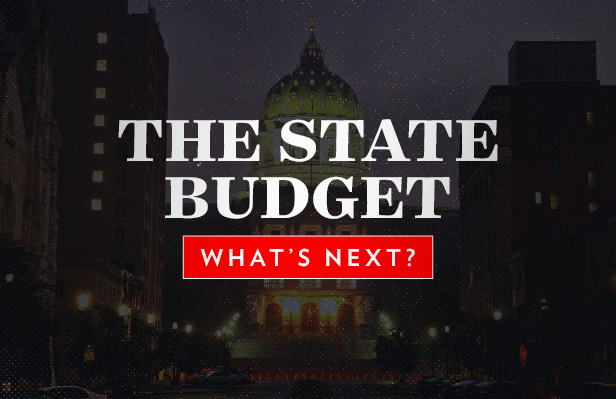Media

Six Unresolved Issues in PA Budget
The PA House is back in session this week, “sorting through hundreds of pages of legislation” related to the state budget.
As Bob points out, while passing a budget is important, the details matter. “It’s simply not responsible to pass a budget just to ‘get it done,’” he writes. “We need to get it right.”
Here are six issues that remain unresolved in state budget negotiations (ranked from easiest to most challenging):
- The spending number. The Senate passed a $30.8 billion budget; the House would like to spend less, having passed a $30.3 billion budget. Even keeping the education funding increases Gov. Wolf demands, there are reductions that can occur—such as the $100 million increase in DCED funding, including $85 million in WAMS.
- Pension reform. While not ideal, the pension reform bill passed by the Senate moves Pennsylvania in the right direction. However, the bill includes “collars,” which would underfund the pension plans next year (adding $500 million to taxpayers’ pension debt) and was passed without the legally required actuarial note. The House could fix these two issues.
- The fiscal code. Gov. Wolf has threatened to veto the fiscal code over regulatory changes affecting natural gas and requiring legislative approval of the state “Clean Action Plan,” which threatens Pennsylvania’s coal industry. These changes though, have bipartisan legislative support, and Wolf should drop his threats.
- The education code. Two major issues remain in the education code. One: The formula used to distribute school funding—that determines how much money each district gets. House members are unhappy with the governor’s formula, which deviates from the formula crafted by the funding reform commission. Secondly, a late insertion of punitive cuts to cyber schools—demanded last week by Gov. Wolf—is another provision the House is likely to change.
- Wine reform. Liquor privatization is a priority for the House. But the Senate stripped liquor from “liquor privatization”, instead allowing restaurants and grocery stores with an “R” licenses (those few that currently sell beer) to sell up to four bottles of wine. They also stripped out wholesale privatization, keeping a government monopoly over the distribution of wine and spirits. That is to say, restaurants would have to buy their wine from the PLCB. This is a far cry from the privatization plan passed in June and the plan passed by the House in October.
- Tax hikes. Everyone is waiting to see how the state will raise a reported $1.2 billion in taxes to pay for higher spending. There is no formal proposal and very little support in the House—and probably in the Senate—to raise sales or income taxes. Since March, Gov. Wolf has demanded new taxes without the votes to pass a tax increase.
Almost a month ago, we called on lawmakers to pass a stopgap budget before Thanksgiving. Given the significant issues and differences that remain, lawmakers should act now to ensure emergency funding reaches schools and human services before Christmas.